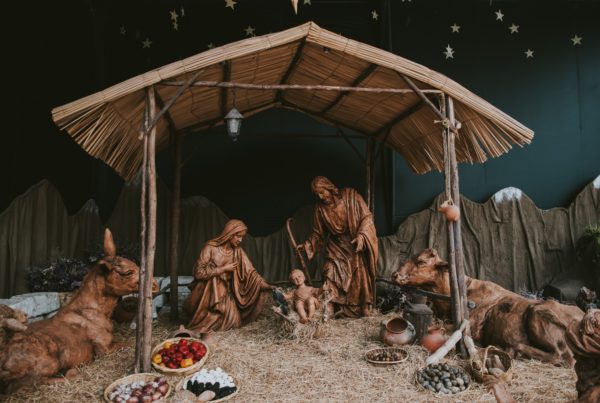Boxing Day, December 26 (or the first weekday after Christmas), is a holiday derived from a long English tradition. It spread with the British Empire and is now celebrated in countries such as Canada, Australia, and New Zealand, as well as in the British Islands.
The Boxing Day tradition has to do with gifts for the poor or those in some sort of service, but there seem to be several strands to its history. Perhaps the earliest dates from the medieval Great Houses, which were famous for their enormous feasts. It is said that after such a feast on Christmas Day, the remaining food was packed into boxes and brought to the peasants of the estate for their own feast the next day.
Another strand of boxing history comes from the practice of opening the alms boxes (holding money collected for the poor) on St. Stephen’s Day, December 26. Perhaps it was these alms boxes that inspired apprentices and assistants to take boxes of their own around to their master’s customers, asking for tips in return for the service they had given during the year. This practice apparently was pursued vigorously enough to eventually become something of a nuisance!
However it evolved, Boxing Day continued to be associated with giving gifts, usually of money, to those who provide services throughout the year, such as postal carriers, messengers, newspaper deliverers, etc. Today, however, such gifts are usually given in the weeks prior to Christmas.
Where it is celebrated, Boxing Day is a national holiday, and many people are free from work obligations. It is often a visiting day, a time to see friends (in contrast to Christmas Day, which focuses on family). In many places, the emphasis is on outdoor activities, and families might attend a sporting event or pursue some outdoor fun–sledding or ice skating in cold climates, or swimming, surfing, or boat racing where it is warm.
In Canada, Boxing Day celebrations usually include “boxing up” gifts for friends and delivering them, as well as continued Christmas feasting, and perhaps some sledding or ice skating. In recent years, however, retail stores have opened, and the celebration of this holiday has largely given way to “shopping the sales,” a form of celebration U.S. citizens will undoubtedly recognize as familiar.
Suggestions for celebrating Boxing Day
Follow the lead of Carol and David Myers, hosts of what is surely the largest Boxing Day celebration in or anywhere near Holland, Michigan. In fond remembrance of holidays spent in Scotland, the Myers invite a group of fifteen to twenty friends–families with children whenever possible–for a buffet meal and for games all ages can play together. They try to include some guests who are sojourners in the city without many connections–as the Myers were in Scotland. Carol appreciates this holiday as a way of “drawing on a wider circle than one’s family.” She also values it as a way to keep the spirit of celebration alive throughout the twelve days of Christmas, rather than considering it over after Christmas Day.
Revive the old tradition by remembering with gratitude those who provide seldom-recognized services during the year. Decide on a small monetary gift or memento for each one, to be left at the next call. Some on your list might include the mail carrier, the sanitation team, the newspaper carrier, the snow plower or grass cutter, the car parker or dog walker. Showing your appreciation cultivates community as well as providing a reminder of how dependent we are on such services. It may even provide the spark for a family discussion of the relative justice or injustice of how needed services are provided.
One major historical theme of Boxing Day has been concern for the poor. Set time aside on the 26th to sort through any requests for year-end giving you may have received. Keep in mind local agencies, who often are overwhelmed with Christmas baskets and other donations in the days prior to Christmas, only to come up short as holiday generosity dwindles into January apathy. A post-Christmas, year-end check would provide welcome relief in a difficult time.
If you have the 26th off from work, resist the urge to shop or spend the day recovering on the sofa. Instead make plans with friends to sled, visit the beach or zoo, or play backyard football, whatever your climate permits. Keep it simple. Share Christmas leftovers or make pizza, so no one feels trapped in the kitchen.



